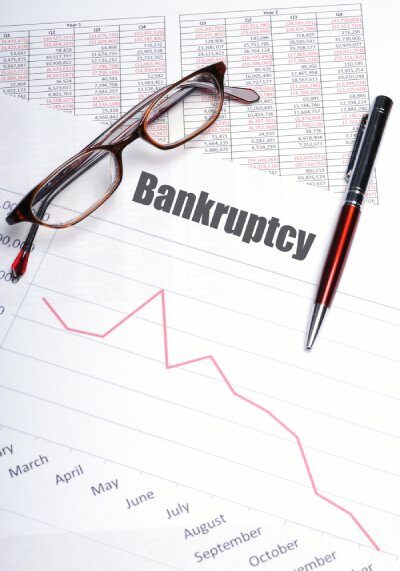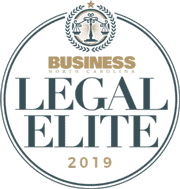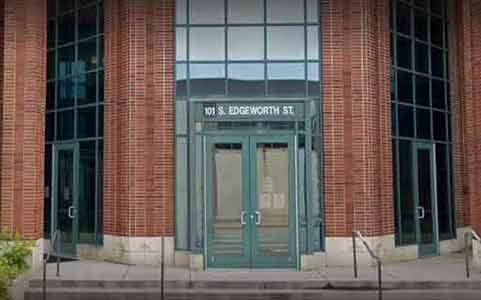What Your Business Should Know About Filing Chapter 11 Bankruptcy in Durham, NC

When most business owners launch their companies, they have high hopes that their Durham business concept will take off. While its newness may initially create a sense of excitement among employees around their work, pushing them to continue innovating and making it easy for them to easily attract customers, that zest can sometimes dim, leading a North Carolina company to experience stagnated growth.
Companies that begin experiencing financial difficulties often attempt to acquire new debt to stay afloat or fall behind in staying current in making payments on existing balances, leading creditors to begin threatening to take legal action to recover what they're owed. That's often when underperforming businesses start assessing their debt relief options and discover filing Chapter 11 bankruptcy in Durham may be a viable option for them to pursue.
Contact a Chapter 7 Bankruptcy Attorney Today
Factors That Lead to Durham North Carolina Companies Filing Chapter 11 Business Bankruptcy
Our attorneys at Ivey McClellan have long assisted business owners with operations in Durham, NC, and elsewhere throughout the Piedmont Triad Region of North Carolina. In our experience in working with nonprofits, partnerships, corporations, and other entities qualified to file for this form of business bankruptcy, we've learned that the following factors often lead these companies to pursue what the U.S. Courts call a reorganization bankruptcy, including:
- Having an ineffectively located publicly facing location for one's business
- Poor financial decision making
- Personal concerns in the owner's life, like divorce or an illness
- Inadequate cash flow concerns
- Unexpected natural disasters like fires, tornados, or floods
- Changes in market conditions
- Civil lawsuits filed against a company or its owners
- Difficulties finding funders
- Falling victim to crime, such as fraud, burglary, or theft
While many circumstances that resulted in you becoming indebted may not be within your control or may have occurred due to a lack of knowledge or inexperience, that's no longer a concern; Chapter 11 bankruptcy allows you right the ship.
Why Chapter 11 Is Referred To as a Debtor in Possession Type of Business Bankruptcy
While there are various business bankruptcy options, Chapter 11 is unique because it allows companies to remain in operation while reorganizing their debts. Thus, why this process is referred to as a "debtor in possession" scenario. It's referred to that way because debtors are bestowed similar fiduciary powers as a trustee in their cases, which means the Court entrusts them to make financially responsible decisions that are in the company and creditors' best interests.
In their role as fiduciary, a debtor must start by submitting documentation providing an accurate accounting of the property they have. It's also their responsibility to examine and either approve or reject claims as they may come in.
The U.S. Bankruptcy Court Middle District of North Carolina trustee may approve a debtor in possession's request to hire auctioneers, accountants, appraisers, and lawyers to assist them in preparing and submitting required monthly operating reports, filing tax returns, or any other duties they have as fiduciary. Thus, the role of a trustee is to ensure compliance with the respective bankruptcy code.

How the Chapter 11 Bankruptcy Process Works in Durham County
Durham, NC companies filing this type of debt relief must generally take the following steps in their case:
- File the Chapter 11 bankruptcy petition with the United States Bankruptcy Court Middle District of North Carolina, which presides over Durham County cases
- Disclose assets (including income) and liabilities (such as expenses) along with any recent financial transactions preceding your business bankruptcy filing in documents known as "schedules"
- Attend an initial meeting of creditors, also referred to as a section 341 meeting, presided over by the U.S. trustee assigned to the case, and any future ones scheduled
- Close any existing business bank account and open a new debtor-in-possession account
- The debtor files a plan of reorganization with the bankruptcy court
- Creditors review the reorganization plan and vote on whether to reject or accept it
- The presiding U.S. trustee reviews the plan of reorganization and decides whether to confirm it (they can do so even if creditors object to it)
- Abide by the reorganization plan (which is a legally binding contract between an indebted company and its creditors) once voted on and ultimately approved by the Court
The above process provides a general overview of the steps involved in the Chapter 11 bankruptcy process. Of course, each Durham company has different assets and liabilities, which may make its case unfold in its own unique way. A bankruptcy lawyer from Greensboro law firm Ivey McClellan can help you prepare for the particular steps you can expect to occur in your case.
How Our Chapter 11 Business Bankruptcy Law Firm Can Help Your Indebted Durham Company
A lot is riding on whether your business bankruptcy case is filed correctly and approved by the Court. It can determine whether your Durham company or nonprofit can remain in operation, retain its assets, and satisfy your creditor obligations.
We, therefore, urge you to consult with a Chapter 11 bankruptcy attorney in our office before you file. Contact us with any business bankruptcy questions or to hire an Ivey McClellan lawyer to help you navigate every step of the process described above.
Schedule An Appointment
Office Locations
Greensboro
305 Blandwood Ave
Greensboro, NC 27401
Phone: (336) 274-4658
Fax: 336-274-4540
Eden
551 Monroe Street
Eden, NC 27288
Phone: (336) 623-4600









